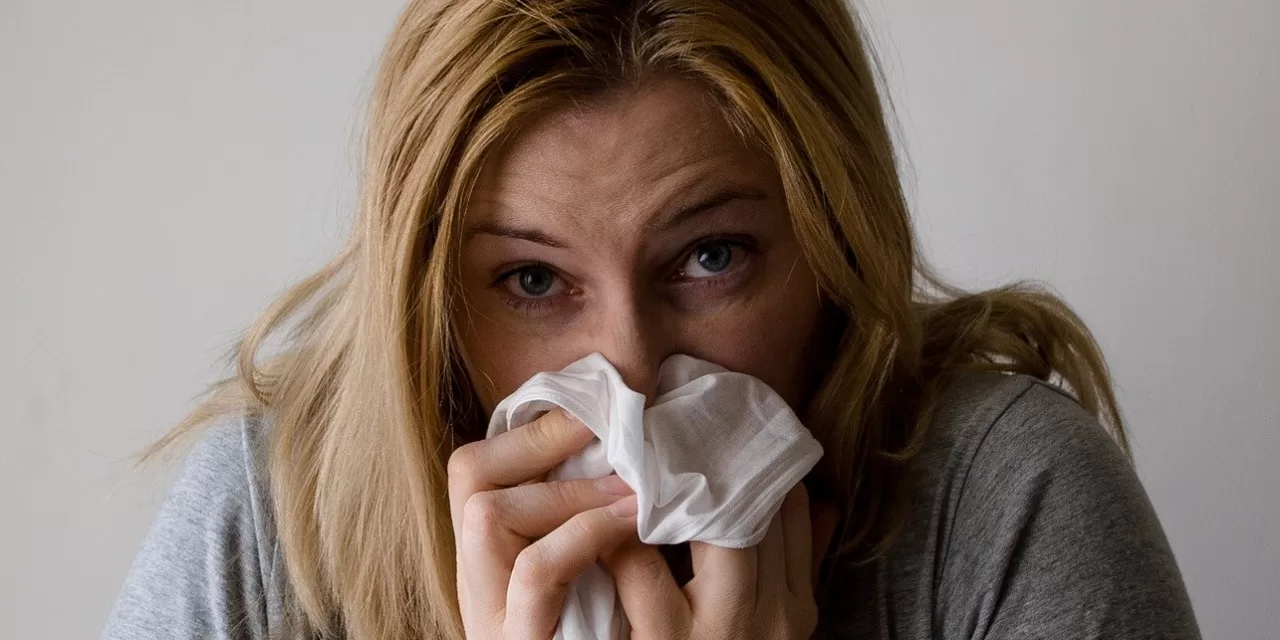The UK could be facing a “quad-demic” this winter, with four common seasonal respiratory viruses circulating across the country. According to the UK Health and Security Agency (UKHSA), alongside the ongoing threats of COVID-19 and flu, the country is also grappling with a surge in cases of respiratory syncytial virus (RSV) and norovirus, posing additional pressure on the already overstretched NHS.
Four Respiratory Viruses on the Rise
Flu cases have seen a dramatic 352% increase compared to December 2023, with more people requiring hospitalization. The uptick in RSV and norovirus has sparked significant concern, as the NHS already faces immense strain from winter pressures and growing demand for GP appointments and hospital care.
Respiratory viruses are more common during winter months, largely due to factors such as colder temperatures prompting people to gather indoors, as well as dry air that helps viruses spread. Additionally, the flu virus has mutated, introducing new strains to which many people may have limited immunity. The seasonal lack of sunlight also leads to lower vitamin D levels, weakening the immune system and making people more susceptible to infections.
Norovirus, known for its high transmissibility, is particularly active at this time of year, leading to a surge in cases.
Pandemic Legacy
The effects of the COVID-19 pandemic linger, with some experts suggesting that less exposure to viruses during lockdowns may have led to lower levels of viral immunity in the population. While more research is needed to confirm this, changes in socialization and the way we work may be influencing how viruses spread.
Vaccination: Your Best Defense
Vaccination remains the most effective way to protect against flu, COVID-19, and RSV. The NHS urges eligible individuals to get vaccinated as cases rise.
For flu and COVID-19, the NHS offers free vaccines to those aged 65 and over, care home residents, and those aged six months to 64 with specific underlying health conditions. Flu and COVID-19 vaccines are also available at pharmacies for those not eligible for free vaccinations.
The NHS has recently rolled out an RSV vaccination program, which has already reached over a million people. Vulnerable individuals, including those aged 75 to 79 and pregnant women, are prioritized for this vaccine. Those outside of these groups can purchase the RSV vaccine from pharmacies like Boots for £245.
However, there is no vaccine for norovirus yet, though one is in development. The best prevention for norovirus includes frequent hand washing, covering your mouth when coughing or sneezing, disposing of tissues properly, and letting fresh air circulate in indoor spaces. Staying home when unwell is also crucial to prevent spreading the virus.
Tackling Health Inequalities
The high costs of private vaccinations raise concerns about the equity of access to healthcare. The varying eligibility criteria for different vaccines can also cause confusion, potentially deterring people from getting vaccinated. Delays in the rollout of the RSV vaccine may have left some vulnerable people unprotected in time for the winter peak.
Managing Symptoms at Home
For those who fall ill, symptoms of flu, COVID-19, RSV, and norovirus can often be managed at home with plenty of rest, fluids, and over-the-counter medications. Flu symptoms in particular are rising among schoolchildren aged five to 14, with a nearly 12% increase in cases within just one week.
Vaccination is the best way to prevent severe illness, but if you do get sick, antiviral treatments for flu are available, particularly for high-risk patients. Pharmacies can recommend non-prescription remedies to ease symptoms and identify cases requiring GP referral.
NHS Strained by Rising Demand
The NHS is already under pressure from seasonal demand, and with the increase in viral infections, the situation may worsen. GP services are bracing for a heavier workload as more people seek help for serious cases of infection, particularly those who are more vulnerable. This could add to the existing strain on healthcare services during peak winter months.
Additionally, reports of other potential threats, such as mpox and avian flu, are raising concerns about the possibility of a fifth and even a sixth epidemic, further stretching resources.
What You Can Do
With the looming threat of a “quad-demic,” the best way to protect yourself and others is to get vaccinated where possible and take simple precautions to reduce your risk of infection. Stay home if you’re unwell, wash your hands regularly, and practice good hygiene to help prevent the spread of these highly contagious viruses.
As winter continues, the NHS urges everyone to stay vigilant and take steps to protect both their own health and the health of those around them. The public’s cooperation is essential to help prevent further strain on an already overstretched healthcare system.












